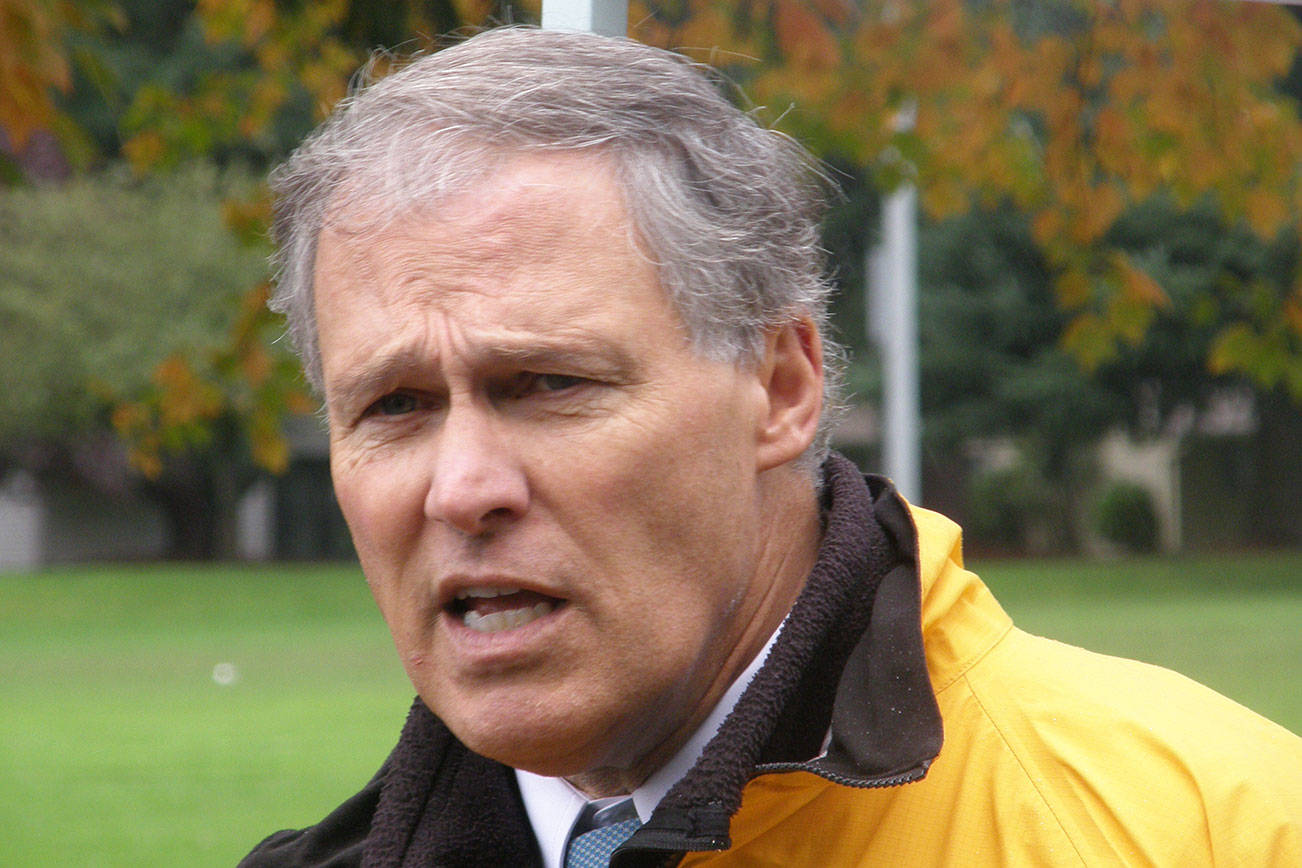Jay Inslee had a chance recently to face his muggers.
He didn’t show up.
It would have been interesting to see if he’s ready to exact a dose of legislative requital from those with whom he seemed to willingly bargain a few years back. The result was what stands as the largest tax break any state has ever given a private company in American history.
Inslee, the two-term Democratic governor who briefly pursued the presidency, signed the deal in 2013 extending the life of some really nice tax incentives to the aerospace industry, chiefly to entice the Boeing Co. to build its new 777X passenger jet in Washington.
Boeing is the state’s largest employer, and a major piston of the state’s economic engine. Inslee, at the time a freshman executive, could ill afford for Washington to lose the competition to one of the other states prostrating themselves in front of the aerospace giant with their own economic gift packages.
He didn’t. Boeing is building the jetliner in Everett. If all goes right, the firm stands to save nearly $9 billion on its tax bills through 2040.
A few months after inking the extension, Inslee began to rail against “corporate extortion” and “blackmail” in the name of jobs, lamenting how every state could be stung like Washington.
In March, discussion of the subject created a memorable moment in his quixotic quest for the White House. Inslee was on The Daily Show and host Trevor Noah asked why he gave Boeing the tax break.
“Look, if you’ve ever been mugged, you understand what it feels like,” he said. “I was not happy about the Boeing situation. What happens is these corporations put a gun to your ribs and say, ‘You’re going to lose 20,000 jobs unless you give us a tax break’.”
Fast forward to the Sept. 5 meeting of the Citizens Commission for Performance Measurement of Tax Preferences. Its five members were gathering public comments on the cost and benefit of those tax breaks which originated in 2003 – to win the Dreamliner competition – and then extended in 2013.
They had in front of them an analysis concluding the incentives had pretty much worked to fortify the aerospace industry as intended. But it noted Boeing has fewer employees now than in 2013. The legislative auditor who penned the report wondered if this mattered to the governor and the Legislature because they did say a purpose of the tax break was to grow the workforce.
If not, no biggie. If it did, the auditor suggested adding a jobs-related measuring stick into law. It’s the same kind of suggestion made the last time the auditor took measure of the tax breaks in 2014.
Lawmakers did take note the last time. Rep. June Robinson, D-Everett, put forth legislation in 2014 and 2015 to tie the number of jobs at Boeing with the size of the tax break it receives. But those bills went nowhere. Inslee steered clear of them.
The hearing provided Inslee another chance to wage his campaign against corporate extortion a short distance from his office – and with a row of Boeing officials on hand to hear it. He was a no-show.
Also absent – and a subject for another day – were aerospace machinists and engineers who fought for those clawback bills in 2014 and 2015.
Inslee’s aerospace advisor, Robin Toth, did attend. She delivered a promotional message of the industry’s strength and importance, and of the state’s efforts to attract more aerospace outfits to Washington. She veered wide of the issue of whether a jobs-related metric should be appended to the tax break law.
“I don’t really have a position on that,” she said afterward. “I haven’t gotten anything from the governor on that.”
Silence at home and protest abroad has been Inslee’s M.O. on this subject in two terms.
If he seeks and secures a third — he says he is all in but climate change czar will be hard to pass up if a Democrat is president — it may embolden the governor to face those muggers.
Jerry Cornfield: 360-352-8623; jcornfield@herald net.com. Twitter: @dospueblos.


